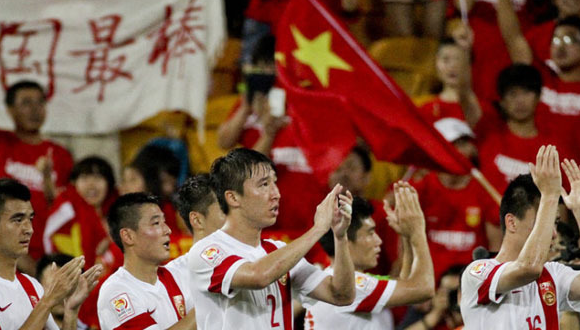China has made a great success in past several Olympics, however, experts warned that only through investment in domestic professional leagues and, above all, by creating strong sporting brands will China ever really profit from such success on the world stage.
For all the passion of the fans and emotion on the field, make no mistake: Sport is big business.
In the United Kingdom and United States, the nations that boast the world's two biggest sporting brands - Manchester United in the English Premier League and New York Yankees in Major League Baseball (MLB) - sport contributes about 2 percent of GDP.
However, in China the sector contributed less than 0.7 percent of GDP in 2009, representing about $20 billion, said Yi Jiandong, a sports industry expert and professor with the Beijing Sport University, who cited estimates based on economic analysis.
Influence of local sportswear brands like Li Ning and Anta are growing through various marketing strategies, but China is doing almost nothing in the sports service sector and China still have a long way to go. As a commodity, the state’s basketball and soccer leagues are of low quality, so the majority of people in China turn to the NBA for basketball and the European leagues for soccer.
What China urgently need to do now is to create a successful product. A product needs to be of good quality, such as the NBA, which has the best basketball stars. Howere, we cannot rely on stars from overseas to boost the market. We need very strong local players. If the foreigners are not helping the homegrown talent to grow, a league will not make any progress.
Once China has a quality product, the country needs to promote it, all the while continually adjusting the product to meet the needs of the market.
The government's involvement in the management of leagues is surely bad for its development. When it is a real commercial thing, stakeholders will try their best to meet the needs of the consumers by providing various products so they can make a fortune. This in turn makes the league more popular. But the government is not always driven by money.
Tax rates were also a problem, said a research director, adding that some sports clubs are charged the same 5- to 15-percent rate as companies in the entertainment industry, such as pool halls and bowling alleys.
